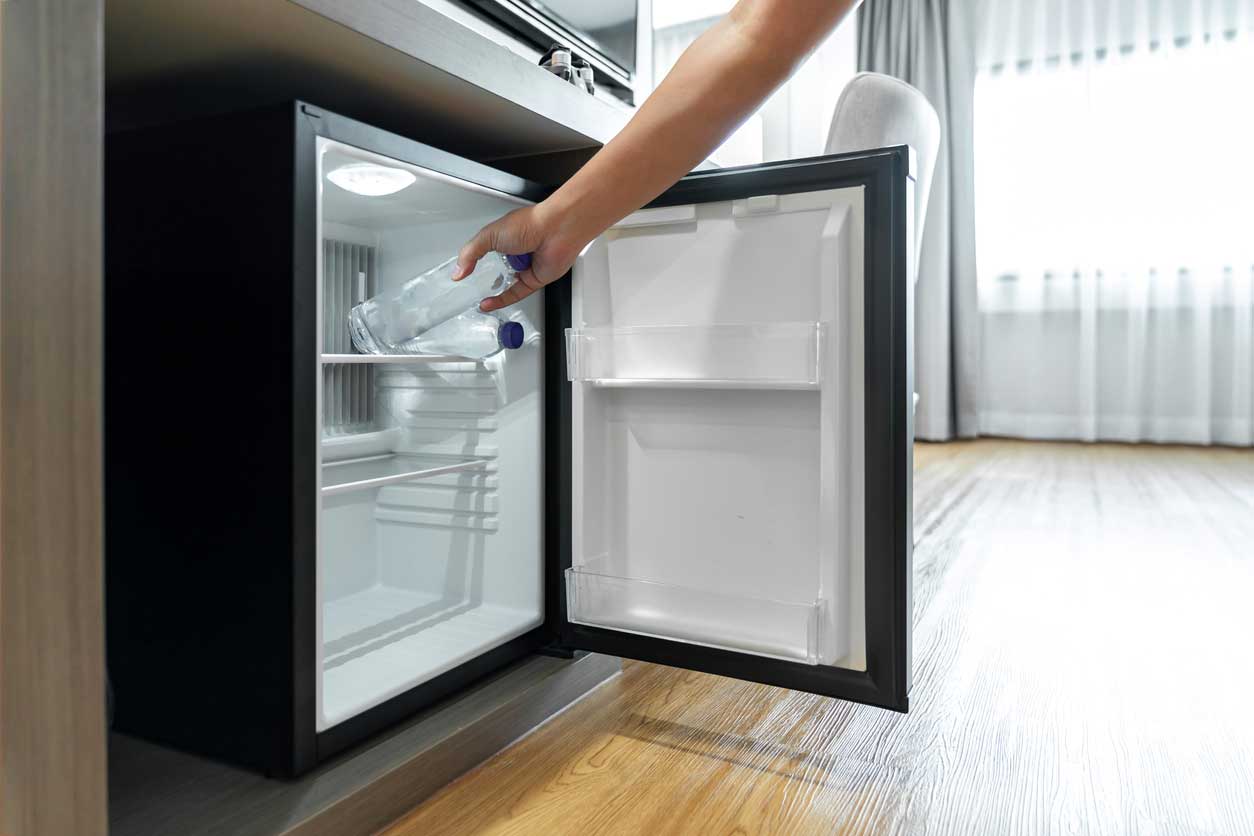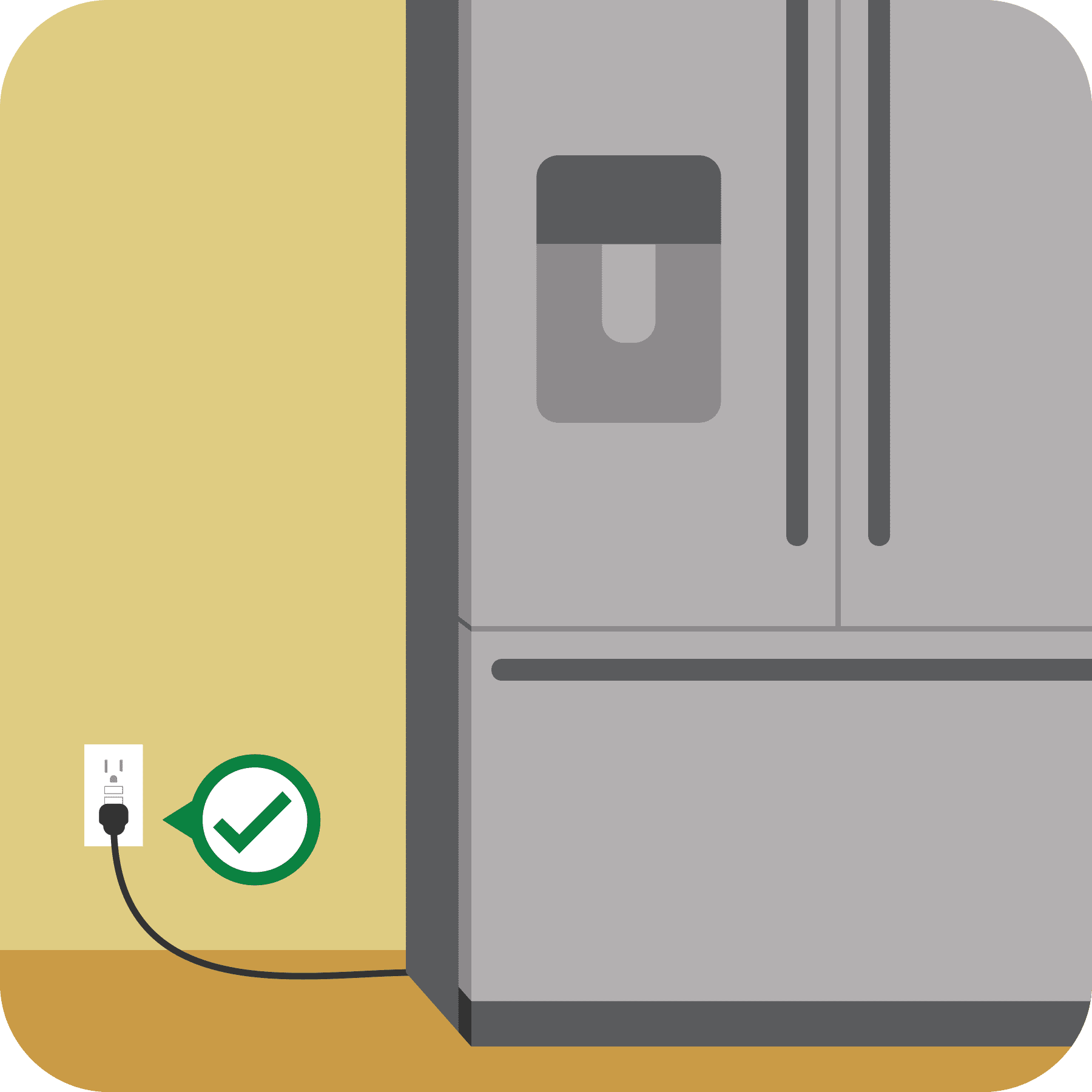Have you ever wondered if your refrigerator can be plugged into a regular outlet? It’s a question that might not seem crucial until you’re rearranging your kitchen or moving into a new home.
You might be concerned about power consumption, safety, or even the impact on your energy bill. This article aims to ease your mind by providing clear and straightforward answers. We’ll explore the compatibility of refrigerators with standard outlets, so you can avoid any potential pitfalls.
Keep reading to discover how making the right connection can save you time, money, and frustration.
Electrical Requirements
Understanding the electrical requirements for plugging your refrigerator into a regular outlet is essential for its safe and efficient operation. A refrigerator is a significant appliance in your home, and knowing the specifics about voltage, amperage, and dedicated circuits can help you avoid common pitfalls. Let’s dive into these elements to ensure your fridge runs smoothly and safely.
Voltage And Amperage
Most refrigerators in the United States require a standard 120-volt outlet. This is the same voltage used by most household outlets. Make sure your outlet can handle this voltage to avoid any electrical issues.
Amperage is another crucial factor. Refrigerators typically need between 3 to 6 amps to run efficiently. Before plugging in, check your fridge’s specifications to ensure your outlet can provide the necessary amperage.
Ever plugged in a fridge only to trip a breaker? It might be due to an amperage mismatch. Double-checking these details can save you from unnecessary headaches.
Dedicated Circuits
A dedicated circuit is often recommended for refrigerators. This means the outlet is solely used for the fridge and not shared with other appliances. Sharing circuits can lead to overload and possible electrical failure.
Consider this: when your fridge shares a circuit with a microwave or toaster, it might lead to frequent tripping of your breaker. This can interrupt your fridge’s cooling process and spoil your food.
Wouldn’t it be reassuring to know your fridge has a dedicated circuit, ensuring constant, uninterrupted power? It’s a small investment that pays off in reliability and peace of mind.
So, before you plug in your new fridge, take a moment to assess its electrical needs. Are your outlets up to the task? Is a dedicated circuit on your to-do list? Ensuring these requirements can lead to longer-lasting appliances and fewer repair bills.
Safety Considerations
Plugging a refrigerator into a regular outlet is common in households. Safety is crucial to avoid electrical issues. Understanding the risks helps in maintaining a secure environment.
Overloading Risks
A refrigerator requires significant power. Plugging it into a regular outlet can cause overload. Overloading happens when too many appliances share the same outlet. This may lead to circuit breakers tripping or fuses blowing. Always check the outlet’s capacity before connecting multiple devices. Avoid using extension cords with refrigerators to prevent overload.
Preventing Electrical Fires
Electrical fires pose a serious threat in homes. Ensure the refrigerator’s power cord is not damaged. Inspect for frayed wires or broken plugs. Faulty cords can spark and ignite fires. Make sure the outlet is clean and free from dust. Dust can act as an insulator, causing heat build-up. Keep flammable materials away from outlets to reduce fire risks.
Outlet Types
Refrigerators can usually plug into a regular outlet. Most households have standard outlets that fit refrigerator plugs. Ensure the outlet matches the refrigerator’s power requirements for safe operation.
When you think about plugging your refrigerator into an outlet, you might wonder if there’s a specific type you need. Not all outlets are created equal, and understanding the different types can be crucial for your appliance’s performance and safety. Let’s break down what you need to know about outlet types to keep your fridge running smoothly.###Standard Outlets
Most homes come equipped with standard outlets, often seen in living rooms and bedrooms. These outlets are typically rated for lower power devices like lamps and phone chargers.Plugging your refrigerator into a standard outlet might seem convenient. However, it’s important to note that refrigerators require more power. Using a standard outlet can lead to overloading, which could trip your circuit breaker. Have you ever had your lights flicker when your fridge kicks on? That could be a sign of an overloaded circuit.###Grounded Outlets
Grounded outlets, easily recognized by the three holes, are designed to handle higher power demands. They provide an extra layer of safety by reducing the risk of electrical shock.When you plug your refrigerator into a grounded outlet, you ensure it has a stable power source. This is critical for maintaining consistent temperature and energy efficiency. Do you remember the last time your fridge mysteriously stopped working after a power surge? A grounded outlet might have prevented that mishap.If your kitchen lacks grounded outlets, consider having an electrician install them. It’s a small investment for peace of mind and appliance longevity.Understanding your outlet options is essential for your refrigerator’s optimal performance. By choosing the right outlet, you protect your appliance and ensure it runs efficiently. So, what kind of outlets do you have in your kitchen?
Credit: www.europeanbusinessreview.com
Energy Efficiency
Plugging a refrigerator into a regular outlet promotes energy efficiency. This setup ensures optimal power usage without compromising cooling performance. It helps reduce electricity bills while maintaining food freshness.
### Energy EfficiencyEnergy efficiency is a critical consideration when it comes to using appliances like refrigerators. You may wonder if plugging your refrigerator into a regular outlet affects its energy consumption. Understanding how this impacts power usage and ways to reduce energy costs can be quite enlightening.### Impact on Power ConsumptionPlugging your refrigerator into a regular outlet is standard practice. However, it’s essential to ensure that your fridge operates efficiently. A well-maintained refrigerator consumes less power.Did you know that dust buildup on coils can make your fridge work harder? Regular cleaning can optimize its performance and reduce power consumption.Have you ever noticed your fridge running constantly? This might indicate a need for seal replacement. Ensuring that your fridge is properly sealed can prevent cold air leakage, saving energy.### Reducing Energy CostsReducing energy costs involves more than just plugging into the right outlet. Setting your refrigerator at the correct temperature is crucial. Aim for 37-40 degrees Fahrenheit for optimal efficiency.Consider this: using energy-efficient models can significantly cut down your electricity bill. Newer models are designed with advanced technology to minimize energy usage.Reflect on the idea of energy-saving habits. Simple actions like not leaving the door open for long can make a big difference. Are you doing everything you can to reduce your energy costs?Think about these insights the next time you head to the kitchen. Are there adjustments you can make for better energy efficiency? Small changes can lead to big savings.Installation Best Practices
Installing your refrigerator correctly is crucial to ensure it runs efficiently and safely. Whether you’re a seasoned DIY enthusiast or a first-time homeowner, following best practices can make a significant difference. Proper installation not only prolongs the life of your refrigerator but also maximizes its performance. Let’s dive into some key practices to keep in mind.
Proper Placement
The location of your refrigerator can affect its efficiency and lifespan. Make sure you place it on a flat, stable surface to prevent any wobbling. Avoid spots near heat sources like ovens or direct sunlight, which can make your fridge work harder to keep cool. Think about accessibility too. You want to ensure there’s enough space around it for air circulation and easy access to doors and drawers.
Avoiding Extension Cords
Using extension cords for your refrigerator can be tempting, especially when outlets are scarce. However, it’s a practice best avoided. Extension cords can overheat and pose a fire risk, especially if not rated for high wattage appliances. Always plug your refrigerator directly into a wall outlet. If you find yourself short on outlets, consider hiring an electrician to install one specifically for your fridge.
Have you ever struggled with finding the right spot for your refrigerator or debated the use of extension cords? These might seem like small decisions, but they have a big impact. Taking the time to ensure proper placement and direct connection can save you headaches down the road.
These installation tips are simple yet effective. They keep your refrigerator running smoothly and reduce the risk of costly repairs. Remember, a little thought upfront goes a long way in maintaining your appliance and ensuring your food stays fresh.

Credit: www.reddit.com
Troubleshooting Common Issues
Refrigerators are essential in every home. Yet, sometimes they face issues. Troubleshooting these problems can seem daunting. But it doesn’t have to be. Most issues are common and easily fixed. Let’s explore solutions to these problems.
Identifying Power Fluctuations
Power fluctuations can cause your refrigerator to malfunction. Check if lights flicker or dim. These are signs of power issues. Use a multimeter to test outlet voltage. Ensure it reads between 110-120 volts. If readings are off, contact an electrician. Ensure no heavy appliances share the outlet. This can cause voltage drops. Always use a dedicated outlet for the refrigerator.
Resolving Tripping Breakers
Tripping breakers indicate an overload. First, unplug the refrigerator. Reset the breaker in your electrical panel. Plug the refrigerator back in. Observe if the breaker trips again. If it does, inspect the power cord. Look for any visible damage. Damaged cords can cause shorts. Replace them immediately. Ensure the outlet is not overloaded with other devices. Only the refrigerator should be connected to it.

Credit: www.usfa.fema.gov
Frequently Asked Questions
Can I Plug My Refrigerator Into Any Outlet?
Yes, most refrigerators can be plugged into regular outlets. Ensure the outlet supports the fridge’s power needs.
What Type Of Outlet Is Needed For A Refrigerator?
A standard 120-volt outlet is suitable for most refrigerators. Check your fridge’s manual for specifications.
Is It Safe To Use Extension Cords With Refrigerators?
Using extension cords with refrigerators is not recommended. They may cause overheating or electrical hazards.
Why Does My Refrigerator Need A Dedicated Circuit?
A dedicated circuit prevents overloads. Refrigerators use significant power, so sharing circuits can trip breakers.
How Can I Check If My Outlet Supports My Fridge?
Check the voltage and amperage of your outlet. Match these with your refrigerator’s requirements.
Conclusion
Plugging a refrigerator into a regular outlet is usually safe. Most modern homes support this setup. Ensure your outlet meets the fridge’s power needs. Check your refrigerator’s manual for guidance. Avoid using extension cords if possible. They can cause overheating or fire risks.
If unsure, consult an electrician for advice. Keeping your fridge properly plugged in ensures safety. It also helps maintain efficiency and longevity. Regular outlet use is convenient and efficient for most users. Enjoy peace of mind with a correctly plugged-in refrigerator.
Stay informed and make smart choices for your home appliances.
